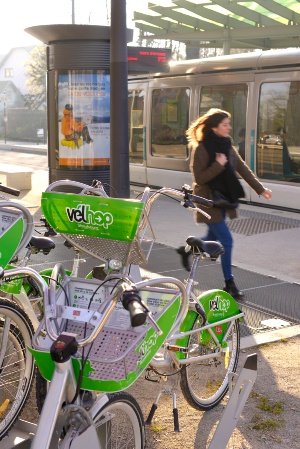
CHAIR
Patrick Maciejewski
Eurométropole de Strasbourg councillor
Deputy Mayor of Schiltigheim
CHIEF EXECUTIVE OFFICER
Emmanuel Auneau
DEPUTY CHAIR
Alain Jund
Deputy Chair of the Eurométropole de Strasbourg
Strasbourg city councillor
BOARD MEMBERS REPRESENTING THE EUROMÉTROPOLE DE STRASBOURG
Pia Imbs
Chair of the Eurométropole de Strasbourg
Mayor of Holtzheim
Béatrice Bulou
Deputy Chair of the Eurométropole de Strasbourg
Mayor of Mundolsheim
Jeanne Barseghian
First Deputy Chair of the Eurométropole de Strasbourg
Mayor of Strasbourg
Pierre Perrin
Eurométropole de Strasbourg councillor
Mayor of Souffelweyersheim
Michèle Leckler
Eurométropole de Strasbourg councillor
Mayor of Plobsheim
Anne Pernelle Richardot
Eurométropole de Strasbourg councillor
Strasbourg city councillor
BOARD MEMBERS REPRESENTING THE GRAND EST REGION
Régine Aloird, Councillor for the Grand Est region
Evelyne Isinger, Councillor for the Grand Est region
CTS STAFF REPRESENTATIVES
Élisabeth Kieffer, CTS employee
Giuseppe Di Forti, CTS employee
ADVISERS
City of Strasbourg
City of Kehl
Bas-Rhin county council
Deposits and consignments fund (CDC)
Partnership contract-holder Keolis
Who decides on the transport service and pricing?
The Eurométropole de Strasbourg is the organising authority and determines the public transport policy. It also sets prices and decides what services to provide and when (routes, frequency, etc.).
The CTS runs the network and the public transport service under a concession contract while also making proactive recommendations to the Eurométropole and providing expertise.
Who chooses the infrastructure?
The Eurométropole conducts feasibility and preliminary design studies for line extensions, provides the land, and steers administrative procedures. It also approves renewals of existing infrastructure and rolling stock.
In its capacity as contracting authority, the CTS plays an active part in the network’s expansion. It designs, builds and funds the infrastructure.
Who provides the funding?
The Eurométropole pays the annual investment costs incurred by the CTS for the renewal of property covered under the concession contract and funds tram line extensions.
The CTS funds the investments for which it is responsible through its own resources, Eurométropole subsidies and bank loans.
The CTS and the SNCF-Keolis group signed a five-year partnership agreement on 1 January 2013. The agreement was extended in late 2017.
Under the terms of the agreement, Keolis supports CTS with the following:
• feedback and knowledge transfer
• technical databases
• service and technical improvements
• communication and promotion
• supplier agreements

The CTS has partnered up with Strasbourg Mobilités, a company responsible for developing ‘soft’ means of transport that complement the public transport service in the metropolitan area. The think tank’s stakeholders include the main local parties involved in urban mobility issues.
The company operates the Vélhop bike hire scheme, which has more than 30 automated docking stations, 1 central agency and a fleet of over 6,800 bicycles, some of which are electric.
In spring 2014, in partnership with the CTS and Citiz, Strasbourg Mobilités launched the PassMobilité. Holders of this travel pass can enjoy unlimited use of the buses, trams, Vélhop bicycles, park & ride sites, Véloparc bicycle parks, the Citiz car sharing service and TER regional trains.














